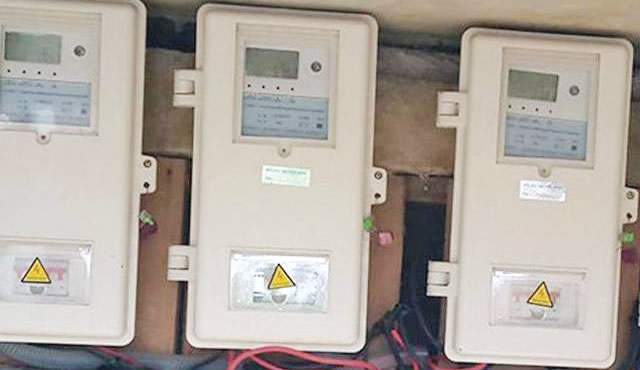Electricity Consumers on Monday rejected the Nigerian Electricity Regulatory Commission’s reduction of the tariff payable by Band A customers from N225/kWh to N206.8/kWh.
The Nigeria Labour Congress, Trade Union Congress, Nigerian Association of Chambers of Commerce, Industry, Mines and Agriculture, electricity consumers and civil society organisations, in separate interviews with the newsmen, demanded a reversal of the hike to the subsidy era tariff.
The new tariff announced on Monday came 33 days after the NERC raised the electricity tariff for Band A customers from N68/kWh to N225/kWh, representing about a 240 per cent increase.
Subsidy on electricity was withdrawn completely from the tariff of consumers in the Band A category, which constitutes about 15 per cent of the total 12.82 million power consumers across the country.
Based on the tariff hike, the Federal Government said it would save N1.5tn.
The government stated that the decision took effect from April 3, 2024, adding that Band A customers would enjoy up to 20 hours of power supply daily.
However, the House of Representatives, organised labour and the Nigerian Bar Association kicked against the hike in tariff payable by about 1.9 million consumers.
The House of Representatives called on the NERC to suspend forthwith the implementation of the new electricity tariff nationwide, while organised labour issued a two-week ultimatum demanding the reversal of the tariff hike.
Still, the Minister of Power, Adebayo Adelabu defended the increase during an investigative hearing held by the Senate Committee on Power last week, insisting that there would be a nationwide blackout in the next three months if the increase in electricity tariff was not implemented.
Notwithstanding the opposition to the new tariff order, the spokesman for the power ministry, Florence Eke, told The PUNCH on Sunday that the new tariff had come to stay and the government would not yield to public pressure.
However, 24 hours after Eke’s assertion that the tariff hike would not be reversed, the NERC in a statement announcing the eight per cent reduction for band A customers said this was a result of changes in macroeconomic indices in April, especially the appreciation of the naira against the dollar in the foreign exchange market.
The commission noted that the decision came after a thorough review of the macroeconomic parameters and exchange rate appreciations.
In response to the NERC’s order, the Abuja, Ikeja, and Ibadan electricity distribution companies among others, announced a reduction in their tariffs, accordingly.
But the minister of power’s Special Adviser on Media and Communication, Bolaji Tunji, maintained that the major problem of the industry was liquidity and that could only be addressed with a cost-reflective tariff.
He argued, “If people are now saying there should be a total reversal of the tariff, then we don’t want the industry to survive because money has to be paid to the gas companies. This money can only come from whatever is generated.
“Can the government afford over N2tn to pay subsidies yearly? No! What about the legacy debt and the current debt? These are the concerns being raised. The debts are affecting the industry seriously.’’
Speaking further, he said, “If you now say they should reverse this tariff, no, they cannot reverse it, unless we want to continually be in darkness; because the investors will pack up, and they won’t be able to sustain their businesses.’’
“It will take us back to where we were before. If people say we should go back to the status quo, it means we don’t want the industry to thrive. If we want the sustenance of this sector, people have to pay,” he stressed.
He noted that the pricing of gas in dollars has been a major concern for the ministry, saying, however, that gas in the international market is denominated in dollars.
He said the minister had met with the Minister of State for Petroleum (Gas), Ekperipke Ekpo, seeking how to ensure gas supply gets to the power generating companies seamlessly to avert the problem of gas shortages.
“We are looking at how we can have a sustained gas supply to the GenCos. The meeting with the gas minister is still ongoing to solve the issue of gas,” he submitted.
On his part, the President of the Lagos Chamber of Commerce and Industry, Gabriel Idahosa, described the development as a gradual maturing of the electricity market which could spark further price reviews in the foreseeable future.
According to him, the decision by the NERC to re-evaluate its earlier stance might not be unconnected with a fundamental shift in the consumption patterns of electricity consumers since the new tariff was announced.
Idahosa said, “It is a gradual maturing of the electricity market. NERC has deregulated the market. So, each market can now determine its price. Eko Disco can determine their prices; Ikeja Electric can determine their prices.
“Each operator will look at their local market and see the level of efficiency and look at the pricing that can bring them more money because they have looked at the N225 price and found that a lot of people are no more comfortable consuming energy like before.”
Meanwhile, the Chairman of the Nigerian Economic Summit Group, Mr. Niyi Yusuf, said that the adjustment by the NERC was timely and a welcome development.
“The appreciation in forex rates is what NERC gave for the slight reduction. While this adjustment by NERC is timely and welcome, it is important to note that the industry needs an appropriate tariff that will sustain investments and operations in both the short and long term. This is the hard work that needs to still be done,” Yusuf submitted.
He reiterated the need to get appropriate tariffs that would sustain investments and operations in both the short and long term.
END.
END.

